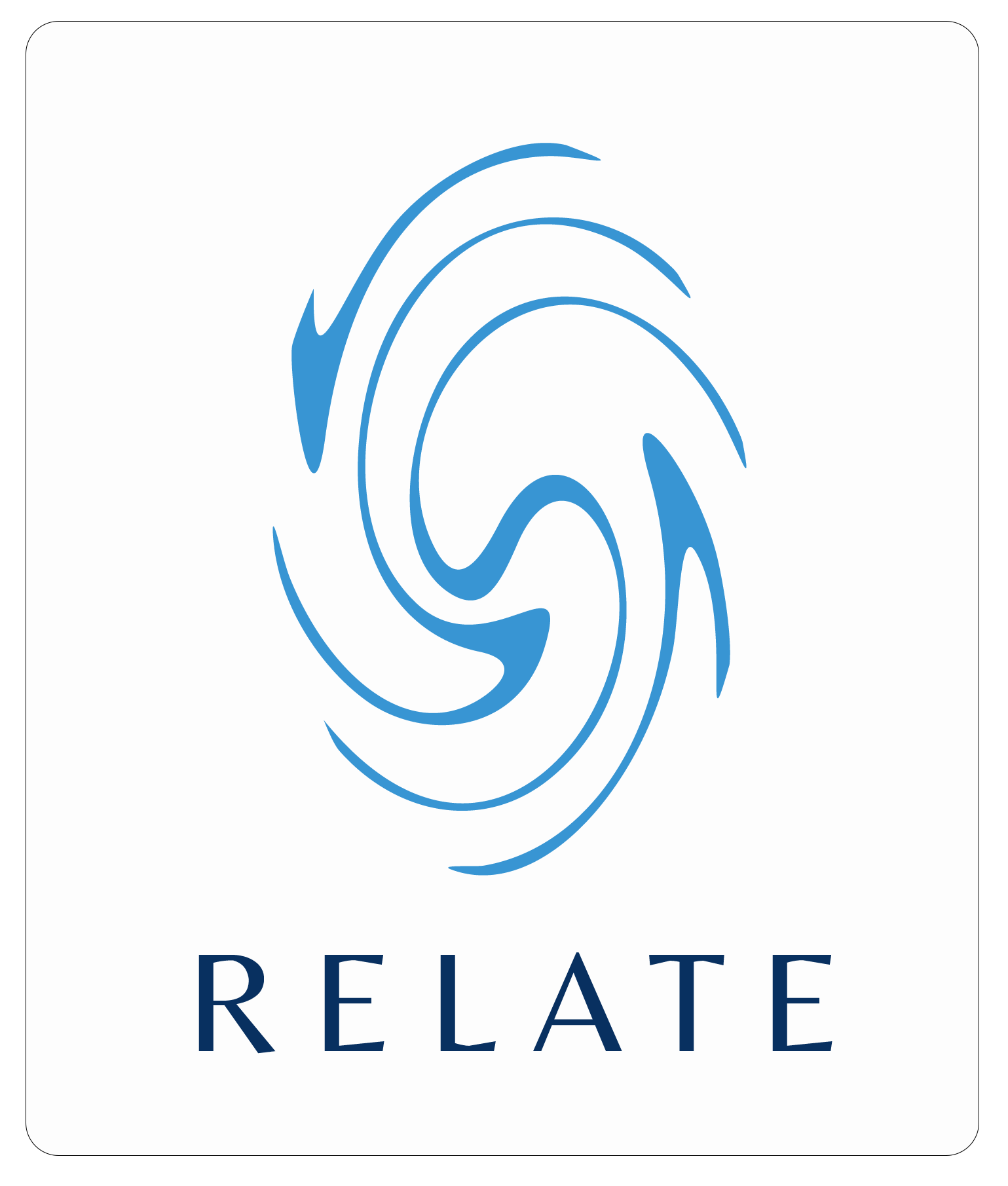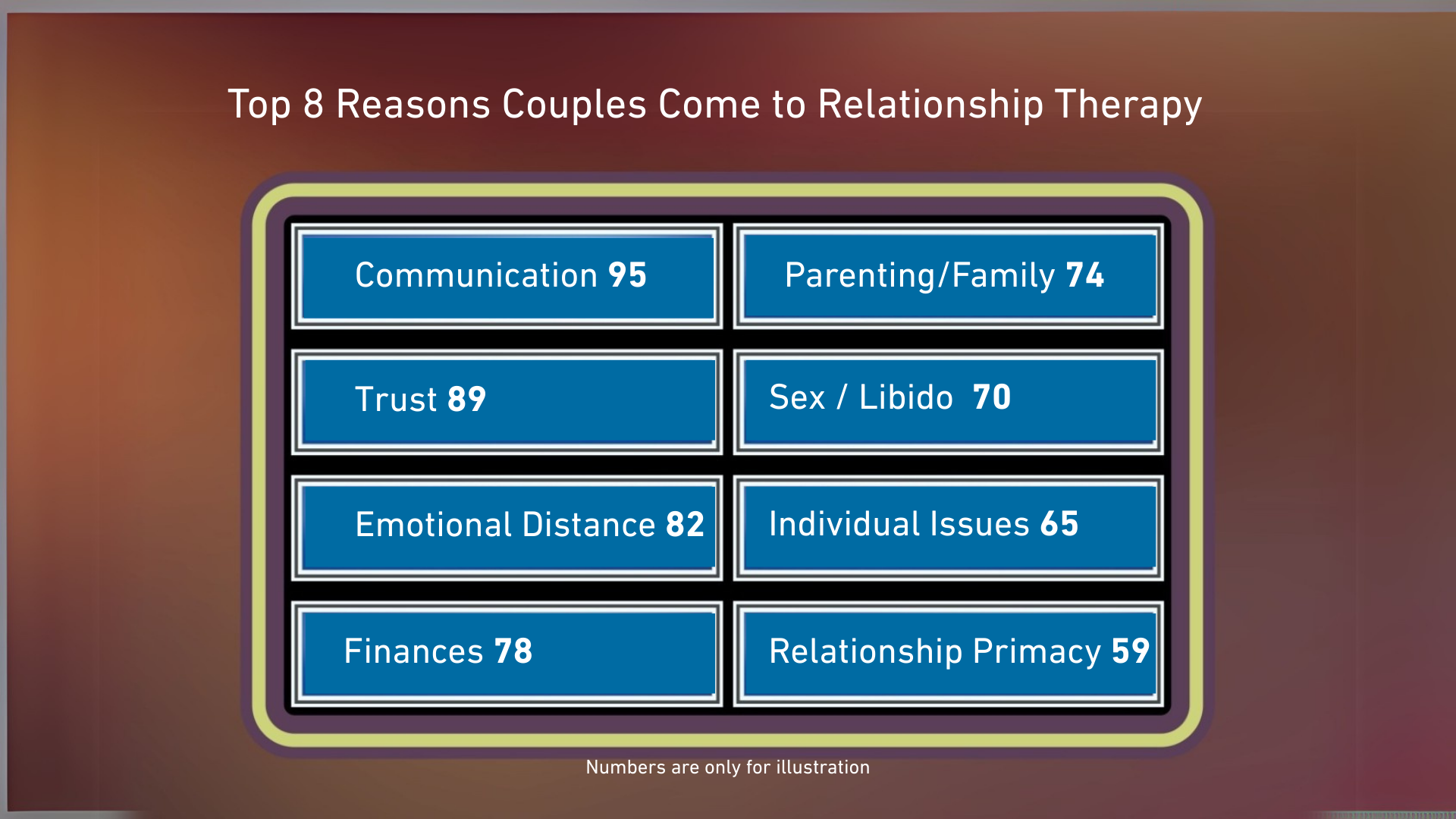Couples Therapy Doesn’t Have to Be a Nightmare
Imagine this: You’re a therapist sitting across from a couple locked in a heated argument. They’re talking over each other, rehashing the same old fights, and looking to you to play referee. You try to guide them toward resolution, but instead, you feel like you’re watching a tennis match of blame and frustration. Sound familiar?
Many therapists shy away from couples therapy because it can be messy, exhausting, and, at times, seemingly unproductive. It’s not uncommon to feel like you’re just along for the ride in someone else’s dysfunction. But what if couples therapy didn’t have to be this way?
Contrary to popular belief, effective couples therapy isn’t about picking sides or fixing one person—it’s about facilitating meaningful change. In this post, we’ll explore some of the most common frustrations with couples therapy and how therapists can turn these challenges into opportunities for growth and transformation.
Want to learn more?
Join our Live Interactive Webinar in partnership with EngagedMinds
United States: March 19, 2025, at 6:00 PM EDT (New York Time)
New Zealand: March 20, 2025, at 11:00 AM NZST (Auckland Time)
Register Here
📍 Who should attend? All mental health professionals interested in improving their couples therapy skills.
📚 Learning Objectives:
- List the key reasons why couples therapy often fails.
- Name strategies to make couples therapy effective.
- Identify three key indicators that couples are ‘falling back into love.’
1. Waiting Until It’s Too Late
One of the biggest frustrations in couples therapy is that many couples seek help only when their relationship is on the brink of collapse. By the time they arrive, resentment has built up, and reversing the damage is much harder.
How to Fix It: Therapists should emphasize early intervention. Couples don’t need to wait for a crisis to seek therapy. Just like preventive healthcare, relationship check-ups can help couples stay connected and avoid deeper issues down the road. The imminent threat of divorce often brings clarity and motivation, but starting sooner allows for healthier, long-term change.
2. Expecting the Therapist to "Fix" Their Partner
Many couples enter therapy hoping the therapist will take their side or change their partner, rather than focusing on mutual growth. This dynamic sets therapy up for failure.
How to Fix It: Therapists can reframe the first session to help couples see what they can do to reconnect, rather than assigning blame. A skilled couples therapist facilitates an environment where each partner sees their own role in the relationship and takes responsibility for their contributions to conflict and healing.
3. Not Doing the Work Outside of Sessions
Therapy isn’t magic. When couples don’t practice communication skills, follow through on exercises, or reflect between sessions, progress stalls.
How to Fix It: Therapists can incorporate real-world applications into their approach. Couples who implement strategies outside of therapy, such as daily check-ins or intentional conversations, see the most success. The good news is that perception shifts made during therapy tend to be long-lasting—when partners experience connection, they naturally want to maintain it.
4. Constantly Rehashing the Same Arguments
Some couples use therapy as a battleground to re-litigate old fights rather than learning new ways to communicate and resolve conflicts.
How to Fix It: A well-trained therapist can recognize when the session is becoming a rehash of past fights and redirect it toward solutions. The goal is to teach couples new communication patterns rather than allowing therapy to become another forum for arguing.
5. Blaming Instead of Taking Responsibility
A blame-heavy mindset prevents real progress. When partners refuse to acknowledge their own role in issues, therapy becomes a cycle of defensiveness.
How to Fix It: In couples therapy, the therapist doesn’t have to be the “bad guy.” By shifting the focus to mutual accountability, therapists can help partners see their own contributions to problems without triggering defensiveness.
6. Emotional or Physical Abuse Being Minimized
When one partner is abusive but refuses to acknowledge it—or worse, the other partner justifies it—it puts the therapist in a difficult ethical position.
How to Fix It: Therapists must set clear boundaries and create a safe space for both partners. If abuse is present, intervention strategies, including referrals to specialized support services, may be necessary. A responsible therapist will establish their limits and recognize when therapy is not the appropriate intervention.
7. Using Therapy as a Drop-Off Station Before Leaving
Some couples enter therapy not to repair the relationship but to confirm that it's over—while pretending to be open to change.
How to Fix It: While this can be disheartening, therapists can still provide value by helping partners navigate separation with clarity and respect. In cases where one or both partners have already emotionally checked out, therapy can serve as a bridge to healthier co-parenting or personal closure.
8. One Partner Being Checked Out
When one person is emotionally done but hasn’t admitted it, therapy can feel like a one-sided struggle. The engaged partner may still be trying, but real progress requires both people to be invested.
How to Fix It: Couples therapy can reveal emotional disengagement quickly, preventing years of fruitless effort and resentment. If one partner is unwilling to re-engage, the therapist can help guide the couple in making informed decisions about their future.
9. Keeping Secrets from the Therapist (or Their Partner)
Withholding key information—such as an ongoing affair or hidden financial troubles—prevents meaningful progress and makes therapy ineffective.
How to Fix It: Unlike individual therapy, couples therapy often brings hidden issues to light. Therapists can set expectations early on that honesty is crucial for progress. Encouraging transparency can help uncover and address underlying issues before they become insurmountable.
10. High Levels of Contempt or Disdain
Some partners view their partner with disgust or disdain, making sessions feel toxic and emotionally draining.
How to Fix It: Contempt is one of the most damaging relationship behaviors, and therapists can identify it quickly. Establishing respect within sessions and addressing contempt head-on is key. Therapists can help couples recognize how this dynamic poisons their relationship and guide them toward healthier interaction patterns.
Final Thoughts: Making Couples Therapy Work
Couples therapy doesn’t have to be a frustrating or ineffective process. By addressing these common pitfalls, therapists can create a more productive and rewarding experience for both themselves and their clients.
Whether you’re a therapist looking to improve your approach or a couple considering therapy, recognizing these challenges is the first step toward meaningful relationship growth. Take a moment and sign up here.
Are you a couple and liked this article and want elaboration? Try ‘What Divorcers Wish They Knew’ in the School of Love
Are you a therapist and want to expert training? Try ‘Integrated Couples Therapy’
#CouplesTherapy #RelationshipCounseling #MarriageHelp #TherapistTraining #MentalHealthProfessionals






